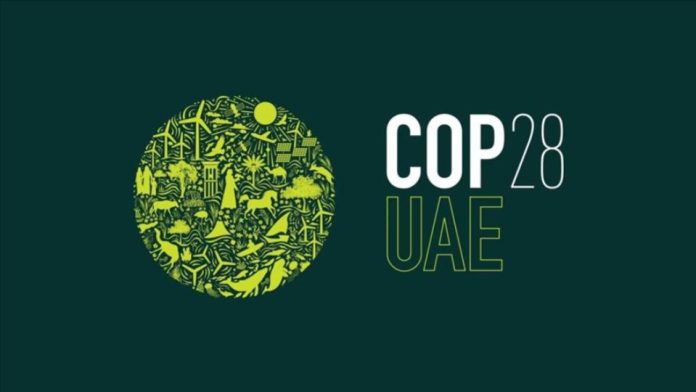Two stark realities frame the ongoing United Nations climate talks of COP28 in Dubai: the planet is hurtling towards disaster, and governments are lagging behind in averting it. In this event, diplomats from nearly 200 nations, along with numerous heads of state, convene to try and draft a plan for accelerating the global transition away from fossil fuels – which is the primary culprit behind our rapidly warming planet.
The event spans from November 30 to December 12, although it is common for negotiations to extend beyond the official timeframe. The venue for the conference is Expo City Dubai, which is also described as a “future-centric mini-city” and linked to the city center. The event is organized across two main zones: the Blue Zone, designated for official negotiations and speeches, and the Green Zone, where exhibits and side events hosted by NGOs, businesses, and other organizations take place. COP 28 highlighted the impact of global warming and climate change on health, “climate-health nexus”.
Conflict of interest
This two-week conference, convened annually by the UN, carries the weight of immense urgency. While last year’s summit in Egypt saw the establishment of a fund to assist vulnerable countries facing climate disasters, it yielded little progress on reducing emissions. Countries that produce gas, oil, and coal, including Egypt, thwarted a proposal aimed at phasing out fossil fuels entirely. Meanwhile, Egypt engaged in sideline agreements to supply natural gas to Europe.
The UN rotates the host country every year across regions. The UAE won the bid with support from other Asia-Pacific nations. However, this year’s host has ignited a firestorm of criticism. The United Arab Emirates, a major oil producer, has not only drawn ire for its fossil fuel dependence, but also for its controversial choice of COP president: Sultan Al Jaber, the head of the UAE’s national oil company. Al Jaber’s leadership is seen as a blatant conflict of interest. The major question was – how can the head of an oil giant navigate the most crucial climate conference of the year?
What is COP28?
COP stands for Conference of the Parties, with “parties” referring to the 197 nations that signed the UN Framework Convention on Climate Change in 1992. This agreement aimed to address “dangerous human interference with the climate system” and stabilize greenhouse gas emissions. The UN climate body convenes these governments annually to discuss joint action on climate change.
The first COP, held in Berlin in 1995, marked the beginning of annual gatherings to address climate change. The landmark COP21 in 2015 saw over 190 countries adopting the Paris Agreement, aiming to limit global warming to well below 2 degrees Celsius. While the agreement set a crucial trajectory, subsequent COPs aimed to enhance the ambition and specificity of the plans outlined in the Paris Agreement
Three key outcomes are anticipated
- Global Stocktake: This is the first formal assessment of whether nations are on track to meet the 2015 Paris Agreement goal of limiting global temperature rise to 1.5 degrees Celsius. This review will inform the ambitious actions needed moving forward. Eight years after the Paris Agreement, COP28 represents the first formal assessment, known as the global stocktake, of countries’ progress toward their climate targets. The assessment reveals that the world is falling short of its global climate goals
- Loss and Damage Fund: Another focal point is the delicate issue of the “loss and damage” fund, aiming to channel funds from rich to poor nations affected by climate impacts.
- Political Agreement: This could involve a deal to replace fossil fuels with clean energy. The question is whether fossil fuels will be phased out entirely and, if so, under what conditions.
Major players
Over 160 nations, including major players like the India, UK, France, Germany, and Japan, have confirmed their attendance. King Charles III and Pope Francis were expected to be high-profile speakers, but Pope was unable to attend due to health reasons, so his speech was read by Vatican Secretary of State Cardinal Parolin. Notably absent from the speakers’ list are US President Joe Biden & China’s Xi Jinping, leaders of the world’s top polluting countries. Israeli Prime Minister Benjamin Netanyahu will also remain absent.
India’s Stance
The initial days of COP28 witnessed India affirming its commitment to mitigating global warming while emphasizing the principles of equity and justice in climate diplomacy. Prime Minister Narendra Modi stated that India achieved its emission intensity-related target 11 years ago and is on track to meet its Nationally Determined Contribution towards the Paris Pact. However, India remains firm on coal’s importance in its energy mix, signaling potential contention at the summit.
COP28 won’t be easy. It will be a battle of conflicting interests, competing priorities, and urgent deadlines. India refused to sign the COP28 Declaration on Climate and Health. India cited the lack of practicality in curbing greenhouse gases use for cooling in the health sector, as the reason.

